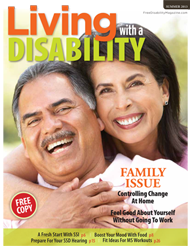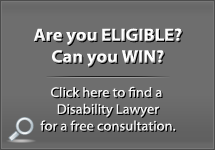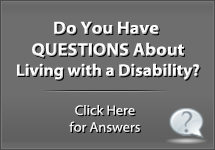Up to one percent of the worldwide population is affected by schizophrenia. For most, the symptoms will begin to show in the late teens to early twenties, however for others they can appear later in life. This mental illness occurs equally across sex and race. Schizophrenia is described by those in the medical and psychiatric field as a mental disorder which disturbs both the perception of reality and how an individual responds to reality. The symptoms of schizophrenia will make it difficult for many people with this condition to have a normal life and function independently in their community.
What are the Symptoms of Schizophrenia?
Schizophrenia is characterized by a variety of symptoms which are for the most part linked to perceptions, identity, language and thought. Symptoms of schizophrenia are divided into two categories. Many people are familiar with some symptoms of the illness such as delusions and hallucinations; these are known as positive symptoms. If one or more positive symptoms of schizophrenia occurs for more than a month, then this can form the base of a diagnosis.
Positive symptoms of schizophrenia include hearing voices, seeing things which are not really there, feelings of paranoia or a sense of persecution. A delusion of reference is the belief that things on the radio or TV or other external sources are about you when they are not. A somatic delusion involves the body, and may be the thought that there is an alien presence inside or an illness that doesn’t actually exist. Delusions of grandeur occur when a person believes they are someone important which is not actually the case in reality. For instance, they may believe themselves to be the President or a celebrity.
There is also a second category of symptoms; negative symptoms. Negative symptoms of schizophrenia are concerned with emotion, language and speech. Alogia is a medical term for suffering problems with language, a person may become quiet and stop talking. They may have problems finding the words they are looking for. A loss of emotions is known as affective flattening. This may include a lack of body language and facial expressions as well. Another negative symptom of schizophrenia is allovation, which is the failure to set and reach goals. A person may stop interacting with friends and family, going to school or attending social functions. These are all instances of allovation.
What Treatment Options are Available for Schizophrenia?
There is no cure for schizophrenia, only treatment for its symptoms. Schizophrenia is treated by a range of procedures. These include anti-psychotic drugs and anti depressants, cognitive and behavioral therapy, as well as electroconvulsive therapy.
If a patient enters psychosis, or has a history of psychotic episodes, then anti-psychotic drugs may be prescribed by a healthcare professional. In the past decade medical treatment for schizophrenia has been greatly improved. Anti depressants are also often prescribed to help with some of the negative symptoms of schizophrenia.










